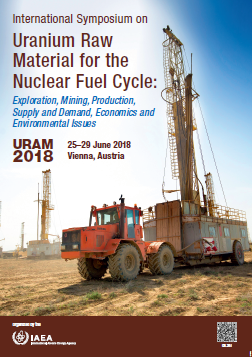Speaker
Mr
Guoxiang Chi
(Department of Geology, University of Regina)
Description
It is generally accepted that the ore-forming fluids in unconformity-related uranium deposits of the Athabasca Basin in northern Saskatchewan were derived from evaporitic seawater in the basin. However, it remains controversial whether uranium was extracted from the basin sediments or from basement rocks. It has been argued that oxidizing conditions and availability of fluid in the basin were favorable for uranium leaching from the sediments, and the present-day low concentrations of uranium in the sedimentary rocks reflects such leaching. However, no direct evidence for this mechanism has been documented. Microthermometric and LA-ICP-MS analyses of fluid inclusions in quartz overgrowths from sandstones distal to ore deposits in the Athabasca Basin, as documented in this study, reveal the presence of Ca-rich and U-rich brines within the basin. Such fluids have been previously found within the unconformity-related uranium deposits and interpreted to indicate a local basement derivation of the metals. The development of such fluids throughout the basin during diagenesis suggests that at least part of the uranium in the unconformity-related uranium deposits was derived from the basin. This finding is important for the refining of exploration model of unconformity-related uranium deposits.
| Country or International Organization | Canada |
|---|
Primary author
Mr
Guoxiang Chi
(Department of Geology, University of Regina)
Co-authors
Mr
Duane Petts
(Geological Survey of Canada)
Mr
Eric G. Potter
(Geological Survey of Canada)
Ms
Haixia Chu
(University of Regina)

